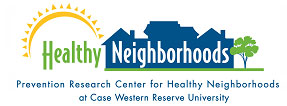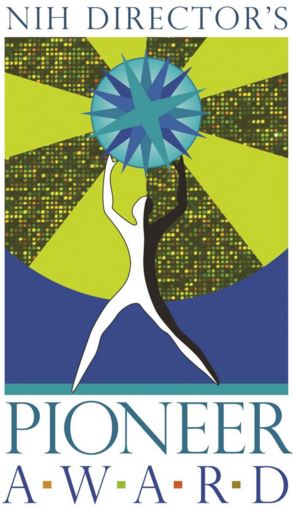 |
 |
 |
 |
|
NEW Annual Pilot RFA!
Letter of Intent Due: September 15, 2016
The CTSC Pilot Grant Program is now accepting letters of intent for the 2017 Annual Pilot RFA. Important information regarding the application process can be found in this Annual Pilot RFA Packet.
Successful applications will meet at least one of the following three criteria, as appropriate for this award:
- Develop new methods and/or insights that are generalizable/scalable.
- Involve cross-institutional collaboration between investigators and/or trainees at CWRU and partner institutions.
- Have a high likelihood of leading to a strong extramural peer-reviewed grant application
Application deadlines are as follows:
Letter of Intent Deadline: September 15, 2016 Application Deadline: November 15, 2016
Only applicants whose letter of intent has been approved will be able to submit an application. For full details on how to submit letters of intent and applications click here.
The CTSC Pilot Grant Program strongly encourages applicants to contact the Pilot Grant Coordinator ( CTSC-Pilot-Coordinator@case.edu) with any questions you may have regarding the application process prior to the submission of the proposal.
|
|
The CTSC grant number has changed!
If you need to cite our award on a publication please use this text: "This publication was made possible by the Clinical and Translational Science Collaborative of Cleveland, 4UL1TR000439 from the National Center for Advancing Translational Sciences (NCATS) component of the National Institutes of Health and NIH roadmap for Medical Research. Its contents are solely the responsibility of the authors and do not necessarily represent the official views of the NIH."
|
|
Congratulations to the May 2016 CTSC Core Utilization Pilot Award Recipients
Thomas McIntyre, PhD
Cleveland Clinic Lerner College of Medicine
"Activity-based ADAMDEC1 Inhibitors"
Richard Wilson, MD
MetroHealth Medical Center
"Peripheral Nerve Stimulation + Physical Therapy for Hemiplegic Shoulder Pain"

Michael Wolfe, MD
MetroHealth Medical Center
"Effect of GIP Monoclonal Antibody on Behavior in the Mouse"
Chad Zender, MD
University Hospitals Case Medical Center
"Analysis of Human Beta Defensin 2 (hBD2) and Human Beta Defensing 3 (hBD3) Expression in Keratinocytes in Human Oral Mucosal Epithelium Using LASER Capture Microdissection (LCM)"
|
|
Welcome to the Cystic Fibrosis Mouse Models Core Facility!
Eligible for CTSC Core Utilization Pilot Grants  |
|  | Graph of the CTFR Function. |
The overall goal of the Cystic Fibrosis Mouse Models Core is to provide mouse models of Cystic Fibrosis for understanding the pathophysiology of the disease and for development of therapies. The Cystic Fibrosis Mouse Models Core is part of the Willard Bernbaum Cystic Fibrosis Center in the Division of Pediatric Pulmonology. The Cystic Fibrosis Mouse Models Core is supported through a Research Development Program from the Cystic Fibrosis Foundation and assists investigators in Cystic Fibrosis mouse related research.
Cystic Fibrosis is a genetic disorder consistently characterized by chronic lung infection, poor growth, exocrine pancreatic insufficiency, intestinal obstruction and malabsorption, reduced fertility and shortened lifespan. Understanding this systemic disorder requires the use of animal models that provide the opportunity to study complex physiologic processes in the context of a living organism. The mouse is particularly well suited for this purpose, as the ability to manipulate its genome and environment provide immense power and versatility as a tool, and the CF mouse shows some level of involvement in nearly every process found in CF patients. |
|  | |
The growth of the mice is measured.
|  |
The Core houses over 50 unique mouse strains that can be utilized in Cystic Fibrosis research. The Core provides services that include: mouse production (from current strains and the creation of new strains), mouse strain maintenance, tissue acquisition, genotyping and treatment of mice with IACUC approved drugs to test potential therapies. In addition to these services, the Core maintains a centralized database that contains breeding history, phenotypes observed and experimental records of the various CF mouse strains.
The Cystic Fibrosis Mouse Models Core is directed by Dr. Craig Hodges. Dr. Hodges has two decades of experience creating and utilizing mouse models to further understand human disease with a focus on Cystic Fibrosis for over 10 years. If interested in using the Cystic Fibrosis Mouse Models Core, please contact Dr. Hodges, Assistant Professor, Department of Pediatrics (craig.hodges@case.edu).
|
| | The genotypes and characteristics of the mice are recorded through observation. |
|
Dean Davis Highlights CWRU International Research Efforts During the RNC
In her remarks to a delegation of foreign diplomats to our nation on July 21st, as part of the Global Partners in Diplomacy project at Tinkham Veale University Center, Dean Davis highlights three ongoing CWRU international research efforts that could lead to establishing new contacts and possibly new collaborations. You can view her remarks here.
|
|
SOM Core Facilities Web Link Has Changed!
Update your bookmarks to the new SOM Core Facilities web link:
|
|
Administrators: Pure Experts can help you identify faculty for specific funding opportunities and more!
In an effort to promote multi-disciplinary clinical and translational research, the Clinical and
Translational Science Collaborative of Cleveland (CTSC) is pleased to introduce Pure Experts, a directory of researcher expertise that enables collaboration among researchers.

This expertise portal is a key component of the CTSC's mission to catalyze new knowledge and discovery to enhance and improve patient care and promote better health in the community.
Pure allows you to:
- Capture and structure your research data centrally
- Identify funding, expertise and collaborative partners
- Report on the reliable, validated data
- Analyze the progress of your teams and departments
- Showcase your accomplishments
|
|
Does Your Study Need Data Collection?
Request CTSC Resources with our NEW service request form
Looking to... 
- Locate potential collaborators
- Match your research needs to core services
- Receive guidance on regulatory requirements
- Match data collection tools to study needs
- Receive guidance on study design and data collection instruments
Submit a request to the CTSC using our new service request form to be one step closer to meeting your research needs!
|
|
Ethical Dilemmas in Scientific Research and Professional Integrity
Shared on behalf of the CTSA at Emory University
The Atlanta Clinical & Translational Science Institute would like to share their Ethical Dilemmas in Scientific Research and Professional Integrity website, video, and podcast with each CTSA and beyond.
This web page presents 40+ case scenarios involving responsible conduct in research. Each case is followed by a brief, expert opinion that suggests strategies for resolution. These resources have proven useful as teaching aids and are broadly relevant across the research spectrum. Please help us spread the word
|
 |
PRCHN Seminars
Mark your calendars for these upcoming PRCHN Seminars.
|  |
There is no August Seminar.
9/14/16-
PRCHN Dissemination Day (at Tinkham Veale University Center)
Elaine Borawski, PhD; Darcy Freedman, PhD; Erika Trapl, PhD; Susan Flock, PhD.
10/12/16-
Partners in Education, Evaluation, and Research (PEER) - 2016 Fellow Presentations
Jeri Jewett, MPH, PEER Program Manager and PEER Fellows
You can find more information on these seminars and other PRCHN programs here.
|
|
From Produce Prescriptions to Healthy Retail: An Update from REACH
Community Health Ambassadors are individuals who have been trained to enact change in their communities. They work with different programs like the Produce Prescription
Program which was started July 1st and helps food-insecure individuals get fresh produce.
|
|  | | Community Health Ambassadors |  |
The participants in the Produce Prescription Program get vouchers to use at local farmer's markets on fruits and vegetables where Community Health Ambassadors are a resource. The ambassadors are also trained to answer questions about healthy eating/cooking resources and the Double-value Produce Perks program, to hand out literature on healthy living, and to promote local Chronic Disease Self-Management Workshops.
 |
| |
| Interns and Ambassadors with Juan Vila from Food Trust |
As part of the Healthy Retail Initiative, REACH has hired two ambassadors and two interns to work on making healthy food available by convincing store owners that their communities want healthier food. To do this, the interns and ambassadors will take inventory of what the store currently sells. From this information, they can make recommendations so that the store owner fells confident that they can sell the healthier food. Currently, two corner stores have signed on to the program Read more. . |
PEER Fellows Research Projects
The Partners in Education, Evaluation, and Research Program's third cohort is over half way through their 15-week training program, and the fellows are on their way to completing their research projects. The fellows have presented their research proposals to their PEER faculty partners and mentors, and PRCHN faculty, staff, and affiliates who then provided feedback which they used to adjust their proposals. The research projects submitted are: - Evaluating the impact of maternal depression screening and referrels for Centering Pregnancy patients on birth outcomes and Centering Parenting involvment.
- The Impact of CRCC's Victim Services on Program Participants: A qualitative research approach looking at understanding options, rights protection, informed decision making, and power/influence of the reporting and court processes.
- Assessing the healthcare needs of refugee and immigrant high school students at an urban, multi-cultural public school in Cleveland.
- Evaluating the Effectiveness of a Text-Based Programmatic Tool to Gather Process and Outcome Data on Formerly Incarcerated Fathers.
- Effect of Dragon Boat Training and Competition on Health Quality of Life, Health Behavior, Exercise Adherence and Cardiovascular Fitness in Cancer Survivors: A Mixed Methods Approach
- Changing the Built Environment through Street Redesign to Promote Physical Activity.
|
 |
Each month, we're getting closer to answering the three big needs we see regarding local health data. Preparations for our August 2 workshop with LiveStories Vice President Andy Krackov have accelerated our progress in all three of these areas as follows:
1) Make it possible to see health outcomes in the context of the social determinants of health: We have created data sets that combine some of the very rich data on demographic and socioeconomic conditions, as provided by our colleagues at the Mandel School's NEOCANDO project, with data on health outcomes provided by our area Health departments. Thus, it's possible to look at, for example, the association between lead or life expectancy and the socioeconomic status of residents.
2) Make it possible to understand the enormous variability in health and the social determinants of health at the local level: we have numerous datasets now available by census tract, zip code and municipality in Cuyahoga County, and by neighborhood in the city of Cleveland.
3) Enable anyone to create maps without having to get access to, or know how to use mapping software: At this point, mapping is available for census tracts and zip codes. Stay tuned for mapping of municipality and neighborhood level data.
|
 |
Researchers Block Cancer Hiding Protein Allowing Mice to Survive Brain Cancer
|
|  | | Stefanie Avril, KL2 Scholar and researcher |  |
Researchers from Case Western Reserve University School of Medicine, including KL2 Scholar Stefanie Avril, have created a therapy that could change the way brain cancer treatment is approached. Using a mouse model, they explored the role of Cdk5 in medulloblastoma, which is one of the most common pediatric brain cancers. Cancers like medulloblastoma often protect themselves by using a protein coating that mimics healthy cells and therefore go undetected by the immune system. Cdk5 is one of these proteins, and high Cdk5 levels often correlate with a worse prognosis of melanoma, brain, breast, and lung cancers.
Through their tests, the researchers found that when they blocked Cdk5 inside tumor cells over half of the mice lived which suggests that the protein plays a significant role in immune system response to tumors. They were also able to identify the immune cells, CD4+ T cells, as the primary immune system response for removing the Cdk5. From these findings, researchers may be able to create molecular therapies targeting Cdk5 to replace current treatments which have severe side effects. They may also find that these therapies work on other types of cancer as is suggested by preliminary studies.
|
 |
|
The Center for the Advancement of Medical Learning (CAML) Workshop Series
The Center for the Advancement of Medical Learning (CAML) is dedicated to the pursuit of excellence in learning, teaching, and educational scholarship within the Case Western Reserve University School of Medicine community. Throughout the fall, they will be hosting a workshop series starting with:
Team Based Learning (TBL): The Hows and Whys - Part 1
Monday, August 29, 2016; 4-7 pm; CWRU School of Medicine E321/323
Additionally, there will be ongoing and by request workshops offered. These are:
- Quality Improvement 101: For Clinical Faculty
- Mistreatment & Neglect
- Small Group Facilitation Series: 1 - Getting Started
- Small Group Facilitation Series: 2 - Quality Improvement
- Small Group Facilitation Series: 3 - Providing High Quality Feedback to Students
- Gathering Your Teaching Evaluations
To request a session contact caml@case.edu.
For more information on the workshop series or the by request view the CAML homepage.
|
|
You Are the Heart of the Community: HIP-Cuyahoga Community Day
September 10, 2016; 10:00 am-2:00 pm
Friendly Inn Settlement - 2386 Unwin Road, Cleveland OH 44104
- Community Health Ambassadors of Creating Destinies
- Community Leaders and organization spotlights
- Networking opportunities
- Community Resources
- Kids' activites
- Food and Giveaways (while supplies last)
- Raffles
- Entertainment
- Live broadcast from 93.1 WZAK
.
|
|
11th Annual Obesity Summit
September 29-30, 2016
Intercontinental Hotel, Cleveland, OH
Plan to attend the 11th Annual Obesity Summit to be held on September 29-30 in Cleveland, Ohio. Featuring innovative solutions to the causes of obesity, preventive strategies, and therapeutic management approaches, the Summit is designed to engage you with colleagues as well as interactive workshops. Sign up today by visiting www.ccfcme.org/ccfobesity. If you have questions call (216) 448-8710.
ACCREDITATION: 16.5 AMA PRA Category 1 Credits
|
|
Save the Date: Clinical Research Forum IT Roundtable
November 16-17, 2016
Chicago, Illinois
The Clinical Research Forum considers the integration of information technology (IT) and clinical research a high priority for its members. The IT Roundtable was initiated in 2005 and has continued to be one of the Forum's most engaging initiatives.
Roundtable meetings provide a venue for academic health center leaders to share experiences and work with vendors to address key IT issues in clinical research such as the interface of clinical services and clinical research data, warehousing, data security, electronic health record platforms, and governance.
|
 |
Limited Competition CTSA Collaborative Funding Opportunities
Multiple Proposal Deadlines
The following Limited Competition CTSA Collaborative Funding Opportunities have been
announced by NCATS. BEFORE submission, those interested MUST contact the CTSC Executive Director, Ginny Petrie (ginny.petrie@case.edu), for coordination of applicants!
Limited Competition: Exploratory CTSA Collaborative Innovation Awards (R21)
Limited Competition: Administrative Supplements to Enhance Network Capacity: Collaborative Opportunities for the CTSA Program (Admin Supp)
|
|
Meso Foundation
Application Deadline: August 5, 2016
 The Meso Foundation (formerly the Mesothelioma Applied Research Foundation) is accepting applications for its 2016 cycle of mesothelioma research grant funding. Grants of up $100,000 over two years will be awarded to qualified investigators for projects related to benchwork, translational, or clinical research that is not presently funded and/or is pending review and is conducted through any nonprofit academic, medical, or research institution.
Encouraged projects include but are not limited to investigations of strategies for early detection of new or progressive disease, definition of targetable differences between normal and transformed mesothelium, and development of novel strategies for treatment, therapeutic intervention, and determination of clinical/molecular determinants for prognosis. Scientists of all levels and degrees are encouraged to apply.
|
 Medical Technology Enterprise Consortium (MTEC)
Application Deadline: August 22, 2016
Medical Technology Enterprise Consortium (MTEC) has announced a solicitation focused on the clinical, prototyping, and manufacturing needs to develop a visual prosthesis that addresses capability gaps for vision restoration and rehabilitation. Specifically, this research opportunity will seek to develop an innovative solution for prototyping an appropriate brain-machine interface.
Proposal Deadline: August 22, 2016
For more information view the Request for Proposals or visit the MTEC webpage.
|
|
The Harrington Prize for Innovation in Medicine
Application Deadline: August 29, 2016
The Harrington Prize for Innovation in Medicine, presented by the American Society for Clinical Investigation and Harrington Discovery Institute at University Hospitals, honors a physician-scientist who has moved science forward with notable achievements in innovation, creativity and potential for clinical application.
This annual prize includes:
* An unrestricted $20,000 honorarium
* The Harrington Prize Lecture, delivered at the 2017 AAP/ASCI/APSA Joint Meeting
* Participation at the Harrington Discovery Institute annual symposium
* A personal essay, published in the Journal of Clinical Investigation
Nominations are being accepted through August 29, 2016.
|
|
NIH Director's Pioneer Award Program (DP1)
Application Deadline: September 2, 2016
 The NIH Director's Pioneer Award initiative complements NIH's traditional, investigator-initiated grant programs by supporting individual scientists of exceptional creativity who propose pioneering and possibly transforming approaches to addressing major biomedical or behavioral challenges that have the potential to produce an unusually high impact on enhancing health, lengthening life, and reducing illness and disability. To be considered pioneering, the proposed research must reflect substantially different scientific directions from those already being pursued in the investigator's research program or elsewhere
For more information visit the NIH webpage.
|
|
American Academy of Neurology Institute
Application Deadline: October 1, 2016
The American Academy of Neurology Institute is accepting applications for its 2016 Medical Education Research Training Fellowship.
 Through the annual fellowship program, AANI will award one-year grants of $65,000 in support of education and research activities at the applicant's institution or elsewhere. Supplementation of the stipend with other grants or by the fellowship institution is permissible, but fellows may not accept other fellowships, similar awards, or have another source of support for more than 50 percent of their research salary. Only direct costs will be funded by this fellowship.
To be eligible, all applicants must be an AAN member (Active or Junior) embarking on a career in medical education research who has completed a neurology, child neurology, or neuro-developmental disabilities residency or neurology fellowship within the past five years.
Application Deadline: October 1, 2016
|
|
Notice of NIH/BD2K Participation in the Joint NSF/NIH Initiative on Quantitative Approaches to Biomedical Big Data (QuBBD)
|
|
FDA Fellowship Research Opportunities
Multiple Proposal Deadlines
The ORISE Research Participation Programs at FDA accept applications from students, recent graduates, and faculty researchers year round.
For more information about each opportunity, including instructions concerning the process for submitting an application and other supporting documents, please visit FDA ORISE webpage.
|
|
Translational Science Funding Opportunity
Multiple Proposal Deadlines
Notice of NIH Participation in the Cyber-Physical Systems Initiative (CPS)(NOT-EB-16-005)
|
|
Special Funding Notices
Multiple Proposal Deadlines
Administrative Supplements to Existing NIH Grants and Cooperative Agreements (Admin Supp)(PA-16-287)
Research Supplements to Promote Diversity in Health-Related Research (Admin Supp)(PA-16-288)
Research Supplements to Promote Re-Entry into Biomedical and Behavioral Research Careers (Admin Supp)(PA-16-289)
NIH Support for Conferences and Scientific Meetings (Parent R13)(PA-16-294)
First Deadline: August 12, 2016
|
|
Department of Defense Funding Opportunities
|
 |
Have you explored Pure yet?
Check out Pure Experts, a directory of researcher expertise that enables collaboration among researchers! For more information on Pure, see the Pure Brochure. Also be sure to contact our Research Concierge Service for all CTSC and research-related queries. |
Researchers: Register for an
ORCID ID
|  |
NIH has now adopted the ORCID ID, a free, open-source unique identifing number. Learn more about ORCID. It is also recommended that researchers link their ORCID ID to their CV in NIH's SciENcv, which creates a current, customizable biosketch on NIH grant form pages for any NIH grant. If you would like to learn more about how to register and link your ORCID number, please contact: Clara Pelfrey, Evaluation Director at clara.pelfrey@case.edu or (216) 368-6478.
|
|
|
|